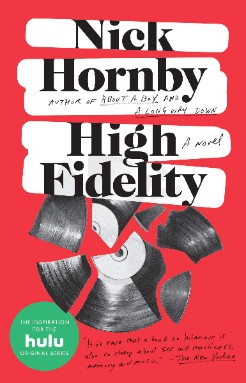My desert-island, all-time, top five most memorable split-ups, in chronological order:
1) Alison Ashworth
2) Penny Hardwick
3) Jackie Allen
4) Charlie Nicholson
5) Sarah Kendrew
These were the ones that really hurt. Can you see your name in that lot, Laura? I reckon you'd sneak into the top ten, but there's no place for you in the top five; those places are reserved for the kind of humiliations and heartbreaks that you're just not capable of delivering. That probably sounds crueler than it is meant to, but the fact is that we're too old to make each other miserable, and that's a good thing, not a bad thing, so don't take your failure to make the list personally. Those days are gone, and good fucking riddance to them; unhappiness really meant something back then. Now it's just a drag, like a cold or having no money. If you really wanted to mess me up, you should have got to me earlier.
1. Alison Ashworth (1972)
Most nights we used to mess around in the park around the corner from my house. I lived in Hertfordshire, but I might just as well have lived in any suburb in England: it was that sort of suburb, and that sort of park — three minutes away from home, right across the road from a little row of shops (a VG supermarket, a newsagent, an off-license). There was nothing around that could help you get your geographical bearings; if the shops were open (and they closed at five-thirty, and one o'clock on Thursdays, and all day Sunday), you could go into the newsagent's and look for a local newspaper, but even that might not give you much of a clue.
We were twelve or thirteen, and had recently discovered irony — or at least, what I later understood to be irony: we only allowed ourselves to play on the swings and the roundabout and the other kids' stuff rusting away in there if we could do it with a sort of self-conscious ironic detachment. This involved either an imitation of absentmindedness (whistling, or chatting, or fiddling with a cigarette stub or a box of matches usually did the trick) or a flirtation with danger, so we jumped off the swings when they could go no higher, jumped on to the roundabout when it would go no faster, hung on to the end of the swingboat until it reached an almost vertical position. If you could somehow prove that these childish entertainments had the potential to dash your brains out, then playing on them became OK somehow.
We had no irony when it came to girls, though. There was just no time to develop it. One moment they weren't there, not in any form that interested us, anyway, and the next you couldn't miss them; they were everywhere, all over the place. One moment you wanted to clonk them on the head for being your sister, or someone else's sister, and the next you wanted to . . . actually, we didn't know what we wanted next, but it was something, something. Almost overnight, all these sisters (there was no other kind of girl, not yet) had become interesting, disturbing, even.
